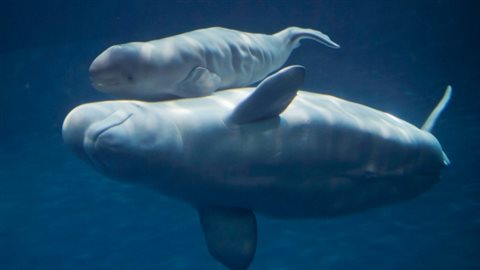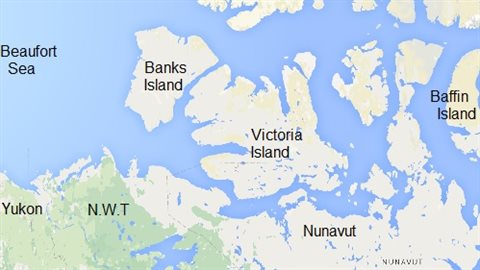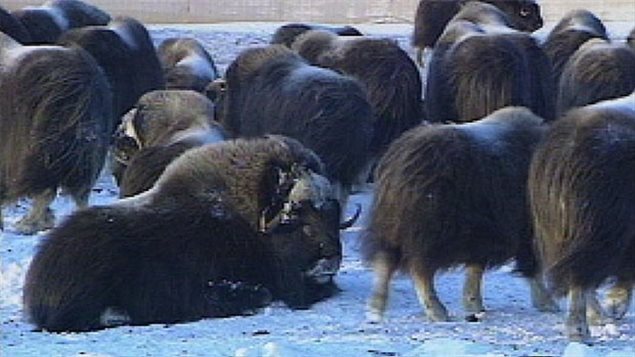The Arctic ice and very long winters has for eons limited access to the far north except for a number of specialized plants, animals, and marine life.
The cold also served as a barrier to insects and to certain diseases.
With the Arctic experiencing warming air and sea, this is changing.
New studies show that not only are new diseases arriving in the Arctic, but that parasites, adapted to a particular species, are also showing a much greater ability to switch hosts.

Many Arctic species have never had exposure to newly arriving pathogens and parasites and as such are easy targets for their spread..
Two American-based researchers (Eric Hoberg, Daniel Brooks) say for example that new findings call for a fundamental shift in thinking about parasite adaptability and spread of diseases, and not only for animals.
They published an article in the journal Philosophical Transactions of the Royal Society B called Evolution in action: climate change, biodiversity dynamics and emerging infectious disease
In the paper, they say that humans can expect more such illnesses to emerge in the future, as climate change shifts habitats and brings wildlife, crops, livestock, and humans into contact with pathogens to which they are susceptible but to which they have never been exposed before.
Another researcher (Micheal Grigg) noted that parasites are proving to be more adaptable to new hosts than previously thought. As an example of parasite adaptability that a parasite infecting most ringed seals, and similar to one infecting dogs, has spread to grey seals with devastating effect. With warmer northern seas, the more southerly grey seals apparently ventured into Arctic ring seal range and contracted the parasite.
Taxoplasa never before found in Arctic
Grigg and colleague Stephen Raverty, a veterinary pathologist at the University of British Columbia, reported that scientists have found some Beluga whales in the Beaufort Sea north of Alaska infected with a parasite that lives in cats and can be transmitted to humans via infected kitty litter.
Freezing is one of the few things that can kill the parasite, called Toxoplasma, Grigg said.
Humans eating whale meat may present health concerns as the parasite can cause pregnant women to miscarry. Freezing is one of the few things that can kill the parasite, which in the lab is stored in sulphuric acid.
Another example of northward spread of disease and parasites is that of lungworm nematodes.

Previously found on the mainland, they began showing up in the caribou and muskox populations of western Nunavut’s Victoria Island in 2008 in muskox, and 2010 in caribou.
It is suspected the parasites have been brought to the island for decades by caribou migrating from the mainland but the cold had kept it in check. Now scientists believe that it has only been in the past several years that the warmer temperatures have allowed the parasites to survive in the high Arctic north of the mainland.
“Climate warming, in both cases, is a central driver in expanding distributions and successful establishment of the parasites on the island,” they said.
Anthropogenic “humanity” factors
The Brook-Holberg paper also notes human drivers of environmental change citing for example Charles Elton, a founder of modern ecology, “(he) succinctly recognized the expanding human footprint across the world through his observation: ‘We must make no mistake; we are seeing one of the greatest historical convulsions in the world’s fauna and flora’” It adds later that, “The scope, scale and pervasive nature of anthropogenic climate warming anticipate substantial impacts across the biosphere..”
UBC pathologist Raverty says examples such as the grey seal and beluga may portend other health threats stemming from Arctic melting.
Stephen Raverty- Health Assessment of Beluga: Baseline Data, Novel Findings, and Disease Trends







For reasons beyond our control, and for an undetermined period of time, our comment section is now closed. However, our social networks remain open to your contributions.